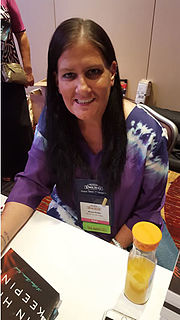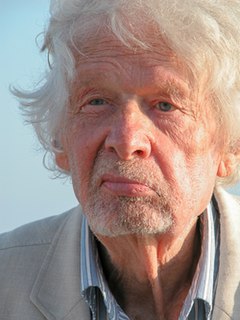A Quote by Terry Pratchett
His mind worked fast, flying in emergency supplies of common sense, as human minds do, to construct a huge anchor in sanity and prove that what happened hadn't really happened and, if it had happened, hadn't happened much.
Related Quotes
Not all that is presented to us as history has really happened; and what really happened did not actually happen the way it is presented to us; moreover, what really happened is only a small part of all that happened. Everything in history remains uncertain, the largest events as well as the smallest occurrence.
Had the Holocaust happened in Tahiti or the Congo, as it has; had it happened in South America, as it has; had it happened in the West Indies, as it has - you must remember that within fifty years of Columbus's arrival, only the bones remained of the people called the Arawaks, with one or two of them in Spain as specimens. Had the Holocaust committed under the Nazis happened somewhere else, we wouldn't be talking about it the way we talk about it.
The Universe was a silly place at best...but the least likely explanation for it was the no-explanation of random chance, the conceit that abstract somethings 'just happened' to be atoms that 'just happened' to get together in ways which 'just happened' to look like consistent laws and some configurations 'just happened' to possess self-awareness and that two 'just happened' to be the Man from Mars and a bald-headed old coot with Jubal inside.
Here I come to one of the memoir writer's difficulties -- one of the reasons why, though I read so many, so many are failures. They leave out the person to whom things happened. The reason is that it is so difficult to describe any human being. So they say: 'This is what happened'; but they do not say what the person was like to whom it happened. And the events mean very little unless we know first to whom they happened.
Love happened. She would have never thought that it could happen so rapidly. Love was something you worked at, and she had no doubt their relationship would take a lot of hard work and dedication. But it had simply happened. No explanation. No cataclysmic event or earth-shattering revelation brought on by some external event. It had simply happened.
So, you could often say things are terrible and that accounts for what happened, or things are really bright, and that accounts for what happened. Often, the real explanation for what happened is much more subtle and interesting and involves maybe small shocks or what a couple people did on a Wednesday morning that changed the arc of history.


































